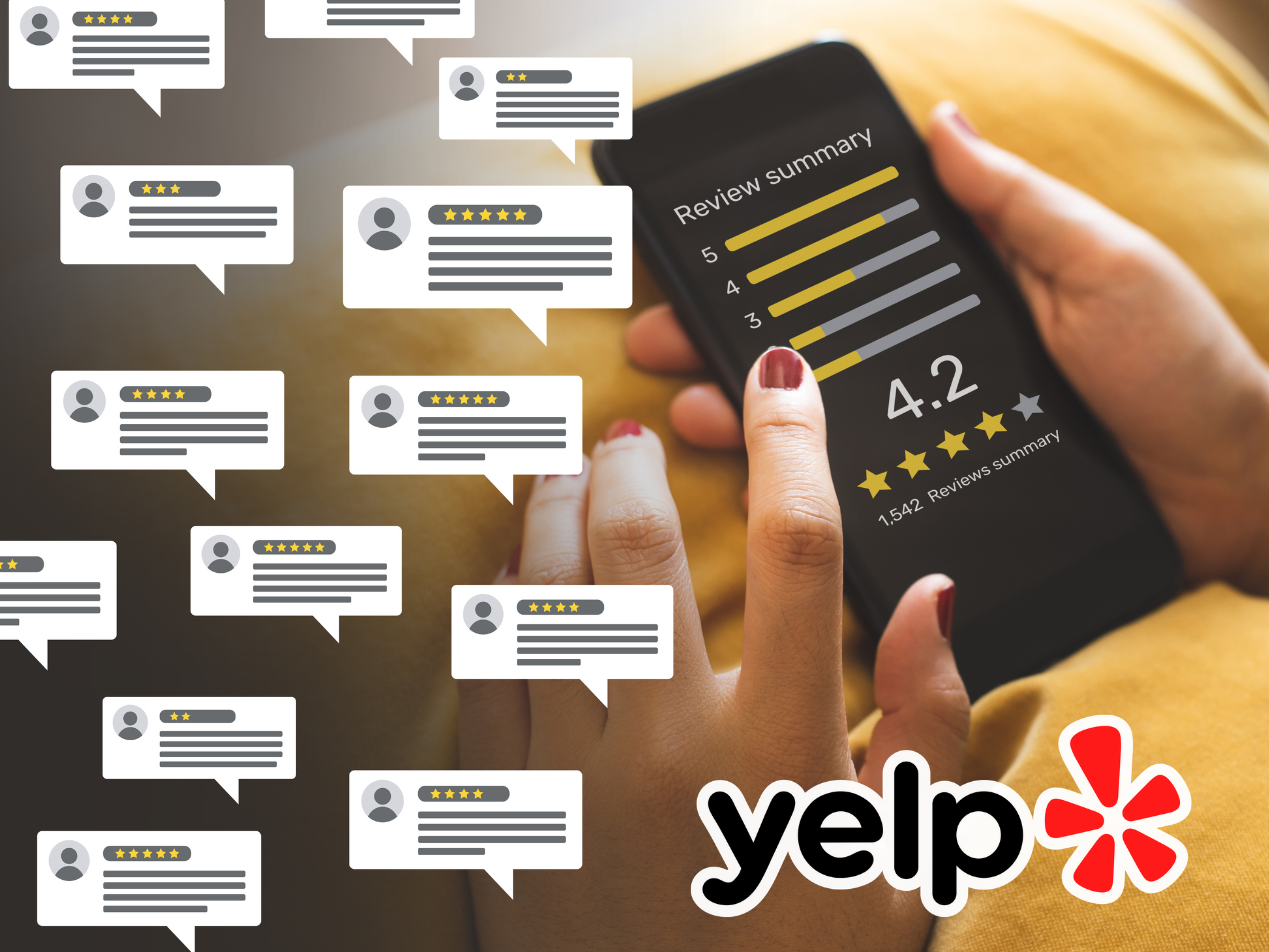
Therapists today need to actively seek and maintain patients to have a successful business. One of the ways some do this is through reviews with companies such as Yelp. The question of whether Yelp is still relevant in 2023 is an important one to discuss.
Especially given that soliciting reviews could lead to HIPAA breaches if therapists inadvertently disclose patients’ protected health information (PHI).
LEARN MORE: HIPAA compliant email: The definitive guide
The HIPAA Act establishes strict privacy and security standards for safeguarding sensitive health information. Before understanding the relevancy of online reviews, mental health practitioners need to recognize possible concerns.
So is Yelp HIPAA compliant?
Yelp, launched in 2004, is a local directory and customer rating website for all types of businesses. Visitors can search and browse by location, business type, or keyword. They can read what others say about a business or leave reviews themselves. Statistics show that Yelp had 244 million reviews on its site in 2021, while revenue in 2022 reached $1.15 billion.
A major part of HIPAA compliance is ensuring a business associate will sign a business associate agreement (BAA). A business associate is a person or entity that performs certain functions or activities that involve PHI. Generally, the HIPAA Privacy Rule allows healthcare providers to disclose PHI if they receive assurance that the information is protected through a signed BAA.
Unfortunately, Yelp is not HIPAA compliant because it will not sign a BAA. However, this does not mean therapists should not use the site. It simply means that covered entities must avoid transmitting PHI via the platform.
It is important for therapists to:
- Maintain PHI confidentiality
- Obtain written authorization to avoid unauthorized disclosure.
- Follow the minimum necessary standard to disclose minimal information.
Ethical concerns about online reviews and Yelp
Beyond HIPAA, therapists should consider several ethical concerns before advocating for reviews on Yelp.
READ MORE: Navigating the ethics of soliciting reviews for mental health professionals
Public reviews may inadvertently expose a client’s identity or relationship with a therapist. Even seemingly harmless details can sometimes be enough to identify someone, leading to unintended consequences. Even more so, responding to reviews more than likely reveal a reviewer’s identity and PHI.
Furthermore, asking current patients to write reviews may create a power imbalance in the therapeutic relationship. Clients may feel pressured to provide positive feedback, or they might even feel like their continued treatment depends on it.
Similarly, soliciting reviews may create an appearance of bias toward a therapist, potentially undermining trust. And shifting the focus from helping patients to boosting one’s online reputation may instead negate a therapist’s professional standing.
If nothing else, these concerns demonstrate how tricky online reviews are to navigate even beyond HIPAA.
How can therapists use Yelp while ethical and HIPAA compliant
Navigating the complex world of online reviews can be challenging for mental health professionals. That does not mean that they should avoid reviews. Here are five ways to approach the problem responsibly.
- Consult professional organizations’ guidelines and relevant laws to understand the rules surrounding soliciting reviews.
- Prioritize client privacy and confidentiality.
- Consider alternative ways to promote, such as networking, obtaining referrals from colleagues, or using a website and/or other social media platforms.
- If seeking testimonials, focus on former patients rather than current ones. Ensure they are comfortable and willing to share their stories without pressure.
- Develop a strategy for managing online reviews with clear boundaries. Set guidelines for when and how to respond to reviews and never respond while upset.
Most importantly, educate about PHI use and disclosure
Make sure everyone involved with a business understands HIPAA best practices on Yelp (and all social media platforms). Education and training may take several forms, but the takeaway should be to:
- Ask for written consent before sharing reviews.
- Only make general statements.
- Never post information that can be interpreted as PHI.
- Avoid language that confirms whether a reviewer received services.
- Never diagnose or describe any prognoses, symptoms, or course of treatment.
As helpful as online reviews can be, they pose a potentially serious threat to medical providers. In fact, a dental office was recently forced to pay for an inadvertent PHI breach on Yelp. The complainant stated that Elite Dental Associates responded to a Yelp review revealing their name and health condition. The HIPAA investigation further discovered that the dental office did not have proper PHI disclosure policies and procedures in place.
In other words, the breach could have (and should have) been avoided.
Now the big question: is Yelp still relevant for therapists in 2023?
Interestingly, healthcare is the reason that Jeremy Stoppelman, Yelp founder, created the company. He built a platform to make it possible for people to share and find reviews of doctors. And now, every kind of local business. Currently, over 178 million people visit Yelp each month. Over 97% of Yelp visitors declare the platform reliable.
A 2022 survey found that 77% of respondents search online for doctors. Online reviews were at least somewhat important to 93% of these. But only 14% of the 1,221 adults surveyed used Yelp before other search engines (e.g., Google, WebMD, or Facebook).
Though a small sample size, the survey at least shows how useful reviews are to potential patients. And while Yelp may not be the first choice for some, that does not mean online reviews are not relevant. Today, a healthcare organization’s presence online is an integral part of its identity.
Therapists should make an active effort to use reviews to their advantage while remaining ethical and HIPAA compliant. Soliciting reviews can be a complex issue, but navigating the world of online reviews could do much to improve patient trust and reputation.
Subscribe to Paubox Weekly
Every Friday we bring you the most important news from Paubox. Our aim is to make you smarter, faster.




